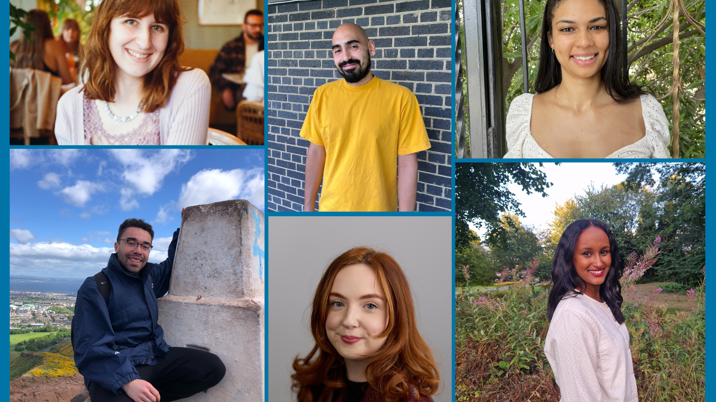
The Guardian Foundation has announced the recipients of this year’s bursary scheme who are: Raphael Boyd, Mimi Ibrahim, Rachel Keenan, Olivia Lee, Kate McCusker and Matt Pearce. They will start their MAs in Journalism in September at Manchester Metropolitan University, Leeds Trinity University, Goldsmiths College, University of London, Birmingham City University, The University of Sheffield and City, University of London respectively.
- Raphael Boyd has written about sport and arts on a freelance basis, including write ups for the Skinny in Scotland.
- Mimi Ibrahim is a history graduate from King’s College London. She has worked for the communications department at CILT(UK) where her key responsibilities included working on the production of the Institute’s monthly membership magazine.
- Rachel Keenan is from rural northeast Scotland and studied at Edinburgh Napier University. She has worked with DC Thomson, Edinburgh Live and the Centre of Investigative Journalism.
- Oliva Lee studied at UCL, where she wrote for Blueprint magazine, a cross-university publication dedicated to student mental health. She has also lived and worked in Colombia, where she spent her spare time writing a blog about unique aspects of the country’s culture and history.
- Kate McCusker grew up in County Tyrone, Northern Ireland. She graduated from Central Saint Martins with a first-class degree in fashion journalism in 2020 and has worked at architecture and design magazine Dezeen since December 2021, progressing from digital assistant to social media editor.
- Matt Pearce has spent most of his career working in education and construction, which exposed him to societal issues facing marginalised people, and developed his interest in writing inclusive and investigative stories which illuminate injustices.
Find out more about them here.
Kelly Walls, executive director, The Guardian Foundation, said: “We’re delighted to welcome Raphael, Mimi, Rachel, Olivia, Kate and Matt as our 2023/24 bursary recipients. They join a long list of amazing journalists who have come through the scheme and proved that more diverse journalism is better journalism. I’m so pleased that we have been able to double the impact of the scheme this year by increasing our places from three to six. They are such a talented and exciting group, huge congratulations to them.”
For the last 35 years, the publisher says the bursary scheme has assisted over 130 students from backgrounds underrepresented in the media, offering funding and experience at a level unmatched by any other UK journalism scholarship. This has contributed to the success of many journalists who are doing vital work in the industry today.
This year, the Foundation added three new bursaries reserved specifically for Black aspiring journalists in the UK. These are funded by the Scott Trust and form part of a decade-long programme of restorative justice in response to independent research into the Guardian’s historical connections to transatlantic slavery. The findings, published earlier this year, identified linksbetween John Edward Taylor and the associates who funded the Manchester Guardian’s creation, and slavery.
In addition, the Scott Trust says it is also funding two cadetships with Guardian Australia, while a similar scheme is being developed in the US – both in collaboration with The Guardian Foundation. Applications for the Australian Cadetships are now open.
The Scott Trust Bursary is a key part of The Guardian Foundation’s work to facilitate voice and agency with those who face barriers entering careers in journalism. It offers tuition fees, living expenses, mentoring and work placements at the Guardian. Many recipients have gone on to successful careers in the industry, working for news outlets such as the Guardian, BBC, New York Times, Financial Times and the Mirror. The scheme’s alumni include Gary Younge, Samira Ahmed, Tariq Panja, Simon Murphy, Pippa Crerar, Lanre Bakare and more.
The application process for the 2024-25 Scott Trust Bursary will commence early next year.
Keep up-to-date with publishing news: sign up here for InPubWeekly, our free weekly e-newsletter.









